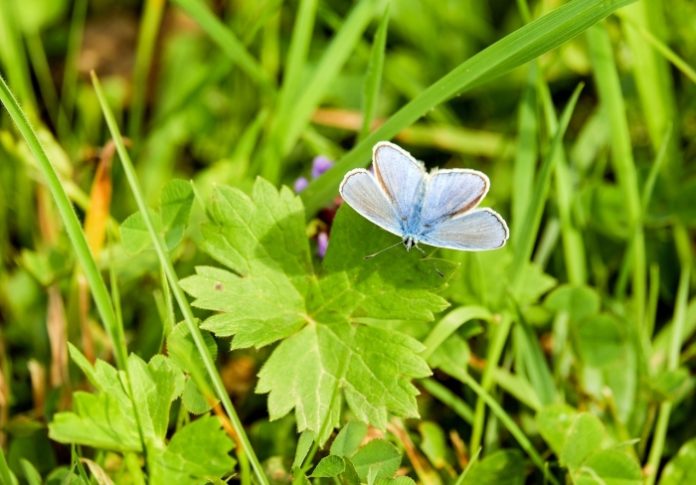Somerset County Council is proposing to reduce grass-cutting by 25 per cent on council-owned green spaces in the Burnham-On-Sea area and across the county to help protect the county’s pollinating insect population.
In partnership with Friends of the Earth and Somerset Wildlife Trust, the authority has published a new county-wide strategy to help bees, butterflies, moths and other pollinating insects survive and thrive.
It joins the growing list of counties upholding their responsibilities under the National Pollinator Strategy and commits the council to considering the needs of pollinators when delivering its services as well as protecting, and where possible increasing, the amount and a quality of pollinator habitats.
Nationally, pollinator numbers are under threat from habitat loss, pests and diseases, pesticides and climate change. The South West is a stronghold for bees and Somerset and the levels are home to particularly important habitats.

The Somerset Pollinator Action Plan outlines changes in ways of working within the county council and across district councils that will benefit the environment and should save costs while helping pollinating insect numbers – as has been seen in neighbouring Dorset where a similar policy was adopted two years ago.
“A healthy pollinator population is critical to the long-term health of agriculture,” said Councillor David Hall, Cabinet Member for Economic Development, Planning and Community Infrastructure. “And Somerset’s rich habitats, open spaces and productive farmland give it an important part of play in the sustainable future of the country’s pollinator numbers.”
“This strategy is about joint working and learning from measures that have worked elsewhere which show that if you get things right what you can do to support pollinators and reduce costs.”
Actions in the butterfly plan include:
- Reduce grass-cutting by 25 per cent on council-owned green spaces
- Promoting the creation of pollinator-friendly features in new developments
- Ensure green spaces in new developments are made pollinator friendly
- Identify areas of parkland where cutting can be reduced without effecting amenity areas
- Review the use of pesticides by the council, and use alternatives where available
- Provide info on pollinator-friendly gardening activities to residents, schools and businesses
- Reduce frequency of verge cutting where appropriate to encourage growth of wildflowers
- Create special verge areas seeded with wildflowers
This will not affect the cutting of grass areas for road safety reasons, or the Council’s maintenance of designated community spaces.
In the UK there are over 1,500 species of insect that pollinate our crops and wildflowers, including bees, butterflies, moths, flies, beetles and wasps. They are integral to our ecosystems but are sadly under threat.
- 50 per cent of the UKs bumblebee species are in decline; three of which have already gone extinct.
- 71 per cent of the UKs butterfly species show declines.
- Two-thirds of moth species are in decline.
- 38 per cent of Europe’s bee and hoverfly species are in decline.
Nationally, pollinators are estimated to contribute over £600m per annum to the UK economy through the pollination of commercial crops. If present declines continue, it is likely to cost an estimated £1.8bn per annum for the hand pollination of commercial plant species.
Indra Francesco, local co-ordinator for Friends of the Earth, who has been campaigning for a local pollinator strategy said: “Local councils with their wide-ranging responsibilities, services and land holdings are in a unique position to help safeguard our bees and other native pollinators. We’re delighted that Somerset County Council is developing a Local Pollinator Strategy, which must protect and enhance our bee-friendly habitats and spaces and put the county at the forefront of action to protect these precious creatures. If there are no bees, there’s no cider!”
Steve Mewes, Policies & Campaigns Manager, Somerset Wildlife Trust said: “Somerset is a county whose economic health is inexorably linked to large scale crop pollination, and not only this, our wildlife food chains are dependent on good numbers of invertebrates – including pollinators.”
“We need to ensure that we are delivering, optimising and connecting habitats and environments where pollinator populations can grow and thrive. And that means not only ensuring council owned land and public spaces are carefully managed, but also giving advice to home owners across the county as to what we can all do in our own back garden to help.”
“We hope the pollinator strategy will ensure we are doing as much as we can for these very important species.”







